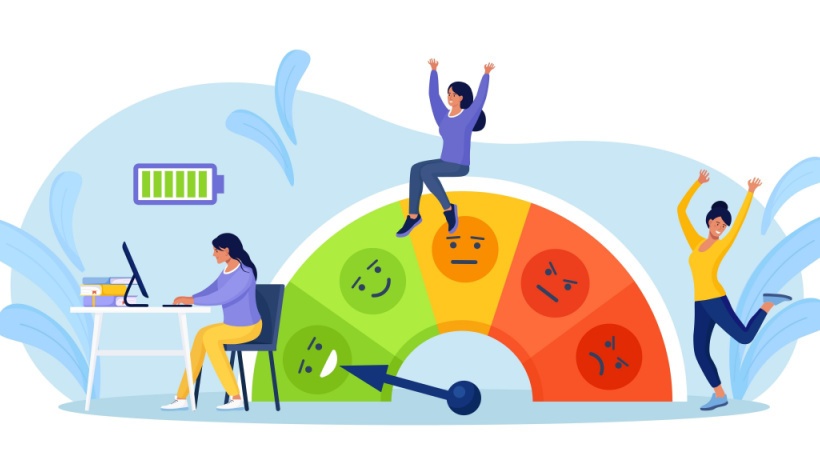7 Engagement Strategies For Online Students
Online education continues to grow and increase in popularity due to its convenience, flexibility, and accessibility. However, online education presents unique challenges in keeping students engaged and motivated in the learning process. Online education leaders must constantly explore innovative ways to maintain student engagement and motivation. This article will discuss the importance of maintaining engagement and motivation in online education and explore some strategies leaders can use to keep students engaged and motivated.
Importance Of Maintaining Engagement And Motivation In Online Education
Maintaining engagement and motivation is essential in online education for several reasons. First, engaged and motivated students are more likely to participate actively in learning. They are more likely to ask questions, provide feedback, and collaborate with peers. Active participation helps students to retain information better and apply what they have learned in real-life situations. Second, maintaining engagement and motivation can improve the overall performance of students. When students are engaged and motivated, they are more likely to complete their assignments on time, participate in discussions, and take exams seriously. As a result, they are more likely to achieve their academic goals.
Third, maintaining engagement and motivation is essential for student retention. Online education presents unique challenges for students, such as limited interaction with instructors and peers, lack of immediate feedback, and little social interaction. These challenges can lead to feelings of isolation and disengagement. When students are disengaged, they are more likely to drop out of the program. Therefore, online education leaders must explore innovative ways to keep students engaged and motivated.
Strategies For Maintaining Engagement And Motivation In Online Education
1. Clear Expectations
Clear expectations are essential for maintaining engagement and motivation in online education. When students know what is expected of them, they are more likely to engage with the material and stay motivated. Leaders in online education can provide clear expectations through various tools and techniques. For example, they can provide detailed course syllabi that outline course objectives, assignments, and assessments. They can also provide detailed instructions for each assignment and assessment, including rubrics and grading criteria.
2. Flexibility
Flexibility is essential for maintaining engagement and motivation in online education. Online education allows students to learn at their own pace and on their schedule. However, leaders in online education need to provide flexibility in other aspects of the learning experience, such as assignments and assessments. Leaders in online education can provide flexibility through various tools and techniques. For example, they can provide various assignments and assessments catering to different learning styles and preferences. They can also allow students to complete assignments and assessments on their schedule within a specific time frame.
3. Real-World Applications
Real-world applications are another effective strategy for maintaining engagement and motivation in online education. When students can see the practical applications of their learning, they are more likely to engage with the material and stay motivated. Leaders in online education can incorporate real-world applications into the learning experience through various tools and techniques. For example, they can use case studies, simulations, and projects that apply the course material to real-world situations. They can also provide opportunities for students to interact with professionals in the field, such as through guest lectures or mentorship programs.
4. Immediate Feedback
Immediate feedback is essential for maintaining engagement and motivation in online education. Online education can be frustrating for students when they do not receive feedback on their progress. Immediate feedback can provide students with a sense of accomplishment, help them identify areas of improvement, and motivate them to continue learning. Leaders in online education can provide immediate feedback through various tools and techniques. For example, they can use automated grading systems to provide instant feedback on quizzes and assignments. They can also provide personalized feedback through video or audio recordings, creating a more personalized and engaging learning experience.
5. Personalized Learning
Personalized learning is one of online education's most effective ways to maintain engagement and motivation. Personalized learning involves tailoring the learning experience to each student's needs, interests, and abilities. This approach allows students to take control of their learning, set their own pace, and engage with the material in a way that suits their learning style. Leaders in online education can use various tools and techniques to personalize the learning experience. For example, they can use adaptive learning technologies that adjust the difficulty level of the material based on the student's performance. They can also provide students with various learning resources, such as videos, podcasts, and interactive simulations.
6. Gamification
Gamification is another effective strategy for maintaining engagement and motivation in online education. Gamification involves incorporating game-like elements, such as points, badges, and leaderboards, into the learning experience. These elements create a sense of competition, challenge, and achievement, motivating students to engage with the material. Leaders in online education can use gamification to create a fun and interactive learning experience. For example, they can create quizzes, challenges, and simulations that reward students for completing tasks or mastering specific skills. They can also create leaderboards that display each student's progress, creating a sense of friendly competition.
7. Social Interaction
Social interaction is essential for maintaining engagement and motivation in online education. Online education can be isolating, and students may feel disconnected from their peers and instructors. Social interaction can create a sense of community, belonging, and support, improving engagement and motivation. Leaders in online education can use various tools and techniques to facilitate social interaction. For example, they can create discussion forums, chat rooms, and social media groups where students can interact with each other and their instructors. They can also organize virtual events, such as webinars, guest lectures, and group projects, that allow students to collaborate and network.
Conclusion
Maintaining engagement and motivation in online education is essential for student success. Online education leaders must constantly explore innovative ways to keep students engaged and motivated in the learning process. Personalized learning, gamification, social interaction, immediate feedback, real-world applications, flexibility, and clear expectations are just some of the strategies leaders in online education can use to maintain engagement and motivation. By using these strategies, leaders in online education can create a fun and engaging learning experience that helps students achieve their academic goals.








